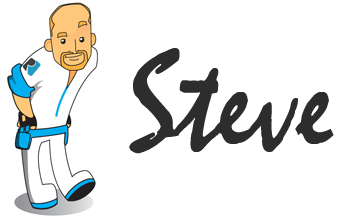| Arra törekszünk, hogy lokalizálni honlapunkon minél több nyelven lehetséges, de ez az oldal jelenleg gépi fordítása a Google Translate. | szorosan |
-
-
termékek
-
erőforrások
-
támogatás
-
cég
-
Milyen típusú merevlemez van szükségem?What type of Hard Drive do I Need?
Által Steve Horton Február 02, 2011drives, hard, hard drives, solid, solid state, stateNo Comments
Üdvözöljük a számítógépes cikkekről, és miért nem működik olyan gyorsan, ahogyan szeretné. Még a legfrissebb PC-k is, különösen egy mindent egyben, mint a Dell vagy a HP, lehetnek az úgynevezett szűk keresztmetszetek, amelyeket egy üveg keskeny nyakára neveznek el. A számítógép legfontosabb területei a leginkább érzékenyek a teljesítményproblémák kialakulásához, és úgy érezzük, hogy tisztában kell lennünk velük, és hogyan kell megakadályozni őket abban, hogy lelassítsák a számítógépet. Ezek a cikkek segítséget nyújtanak Önnek abban, hogy új számítógépet vásárol, és mikor optimalizálja a már meglévő számítógépet.
A mai kérdés: Milyen típusú merevlemezre van szükségem?

Tehát milyen típusú merevlemezre van szükségem?
Néhány out-of-the-box számítógépek, még a legutóbbiak is, megpróbálnak pénzt megtakarítani, ha alacsonyabb, rosszabb merevlemezt adnak el neked. Ügyeljen a következő tényezőkre, hogy megtudja, van-e valami, ami képes kezelni mindent, amit eldob.1. Solid state vs. hard drives
A szilárdtest-technológia a számítógépes tömegtárban újabb fejlesztés. Ez a tárolási forma kiküszöböli a merevlemezek részét képező tálat, orsó és fejet évek óta. Ez növeli a megbízhatóságot és csökkenti az ütközés kockázatát. A kompromisszum, hogy a szilárdtest-technológia még mindig nagyon drága gigabájton a hagyományos, megfelelő merevlemezhez képest.A szilárdtestalapú meghajtók leggyakrabban USB hüvelyk meghajtóként jelennek meg, de ez nem mindig így van: sok netbook, csúcskategóriás laptop, az Apple számítógép, a mobiltelefon és a tabletta 2 GB vagy több szilárdtest-tárolót használ. Csak a legkorábbi iPod-ok hagyományos merevlemezekkel rendelkeztek; ezek az eszközök már évek óta szilárd állapotot használnak.
Ha megengedheti magának, akkor a szilárd állapot határozottan az út, különösen, ha sokat utazik, mert ezeknek a hajtásoknak nincs olyan mozgó részei, amelyek általában hajlamosak a leesés vagy kopogás káros hatásaira. A hagyományos kemény merevlemez a repülőtéri felsőkötélben, vagy még rosszabb, a mozgó furgon hátulján katasztrófa receptje. A szilárdtest-meghajtás könnyedén megragadja az ilyen vihart. A merevlemezek néha érzékenyek az erős mágnesekre is, míg a szilárdtest-meghajtók nincsenek hatással. Van egy oka annak, hogy az űrsikló évek óta használ szilárdtestet.
A szilárdtestalapú meghajtóknak van egy másik nagy előnye a hagyományos merevlemezeken, amelyek közvetlen hatással vannak a számítógép teljesítményére, és ez az a sebesség, amelyen az információk olvashatók és íródnak a meghajtóhoz. A hagyományos merevlemez-meghajtóknak meg kell pörgetniük annak érdekében, hogy az információk íródjanak vagy olvashatók legyenek. A szilárdtestalapú meghajtók nem, és az információ azonnal beolvasható vagy olvasható. Ez a különbség észrevehető hatást gyakorolhat a számítógép teljesítményére, mivel a fájlok és a programok sokkal gyorsabban töltődnek be (bár ez a sebesség bárhol máshol is megjelenhet, például a RAM-ban vagy a CPU-ban).
Mondjuk azonban, hogy a legtöbb terabájt (TB) a pénzért. A merevlemezek még mindig a menni, és szerencséje van: az utóbbi években az árak megdőltek. Ebből az írásból könnyen megtalálható 1,5 TB vagy akár 2 TB körülbelül száz dollár, belső vagy külső. A legnagyobb egyetlen meghajtó által megvásárolható vásárló 3 GB, és ez kb.
2. Forgatás per perc (RPM) és adatátviteli sebesség
Általában minél kisebb a merevlemez, annál nagyobb az adatátviteli sebesség és az RPM. Ez a kisebb meghajtók megbízhatóságát és sebességét növeli. A hatalmas meghajtók rengeteg helyet biztosítanak, de néha feláldozzák a sebességet és a minőséget. Ráadásul a laptop meghajtók általában lassabbak az asztali számítógépeiknél, egyszerűen azért, mert a tál vagy a lemez sokkal apróbb. Keressen egy legalább 5400 RPM-s merevlemezt, de választhatja a 7200 RPM-os meghajtót, ha a legjobb teljesítményt nyújtja a meghajtóból.3. Tárolócsatlakozó interfész
A gyors merevlemez-meghajtás egy dolog, de ha a számítógépéhez kapcsolódik, lassabb portot használ, akkor ez lassítja mindent újra. A modern napi merevlemezek a számítógépekhez Serial ATA (SATA), belső, vagy External Serial ATA (e-SATA) vagy USB külső eszközökön keresztül csatlakoznak. A SATA a legmodernebb és a legnagyobb átviteli sebességet kínálja. Ha olyanok vagyunk, mint én, a régi merevlemezeket több generáción keresztül hordtuk át, és nem törődtek azzal, hogy továbbadják az összes adatot. Ebben az esetben valószínűleg a párhuzamos ATA-val (például a DVD-meghajtóval azonos típusú felületen) keresztül csatlakozik, és a sebességed szenved.Külső meghajtó csatlakoztatása USB-n keresztül is okozhat problémákat, különösen ha lassabb USB 1.0 port van, és nem nagysebességű USB 2.0 port (vagy 3.0). Az olyan dolgok végrehajtása, mint például a nagy mennyiségű adat áthelyezése vagy streaming video, problémákat okoz az USB-n keresztül, ezért szükség van egy e-SATA (vagy akár FireWire) interfészre, amelyek mindegyike nagy mennyiségű adat gyors mozgatására szolgál (más szóval sávszélesség sokkal nagyobb).
Ha új számítógépet vásárol, és adatokat küldenek a külső merevlemezekre, győződjön meg róla, hogy számítógépe rendelkezik USB 2.0 (vagy többszörös) porttal. Ha van egy kis extra pénze a költéshez, válaszd az USB 3.0-at, mivel ez hamarosan az új szabvány, és sokkal gyorsabb adatátviteli sebességet kínál, mint az USB 2.0, hasonló az e-SATA vagy a FireWire.
4. Szoftveres kérdések
A merevlemez továbbra is elhúzódhat, mivel olyan szoftveres problémák jelentkezhetnek, amelyek könnyen javíthatók anélkül, hogy új hardvert kellene beszerelni. Idővel a merevlemez-meghajtó adatait túl sok darabra töredezik a merevlemez tárhelyének túl nagy részét. A merevlemez töredezettségmentesítésére lesz szüksége, és a legtöbb operációs rendszer, beleértve a Windows rendszert is, beépített defragmenterrel rendelkezik. A Windows 7 alatt a Start menü -> Minden program -> Kiegészítők -> Segédprogramok -> Rendszer-defragmenter menüpont alatt van.5. Túl kevés RAM
A legtöbb operációs rendszer memóriahiány miatt virtuális memóriát állít fel a fennmaradó merevlemez-területeken. Mivel a merevlemez-meghajtók sokkal lassabban keresnek adatokat, mint a RAM, ez mindenfajta rendszerlassan okozhat. Szerencsére a RAM ugyanolyan mértékben csökkent, mint a tömegtárolás. A RAM-t úgy is tervezték, hogy felhasználó cserélhető legyen, így max ki a rendszer által kezelhető (figyelembe véve, hogy a 32 bites Windows-verziók nem láthatók több mint 3 GB-ot minden folyamathoz, oszlopba.) Addig is használjon fel nem használt programokat, és megöli a felesleges rendszerfolyamatokat, és felszabadítja a RAM-ot a feladatok elvégzéséhez.A RAM változó sebességgel is elérhető. Ez a MHz-ben jelenik meg, amikor megvásárolja a számítógépet. Nagyon gyakori, ha egy számítógépgyártó nagy mennyiségű RAM-ot hirdet, de ez a RAM 333 MHz vagy 667 MHz RAM, ami lassabb, mint a rendelkezésre álló magasabb végsebességek. Ha lehetséges, akkor válaszd a DDR 3 1066 MHz-es RAM-t.
6. Kor
A merevlemez olvasása / írása csak az életkor miatt fordulhat elő. Ne számítsunk olyan meghajtóra, amely több mint néhány éves. Eljött az ideje annak, hogy mindent vissza tudjunk készíteni egy fényes új olcsó meghajtóra, és megszabadulhatunk az Régi megbízhatatlanságtól. Ellenőrizze a meghajtó hibáit; ez a Windows 7-ben történik, ha jobb egérgombbal kattint a meghajtóra, és menjen a Tulajdonságok -> Eszközök -> Hibaellenőrzés -> Check Now. Néha a számítógép megkéri, hogy ellenőrizze az indításkor bizonyos hibákat. Az idős meghajtók hibáinak rendszeres rögzítése jelentősen meghosszabbítja a meghajtó élettartamát, és csökkenti annak esélyét, hogy a merevlemez meghibásodik és mindent elveszít!Következtetés
Bár a tipikus merevlemez-meghajtókhoz szükség lehet egy új merevlemezre, amely sokkal korszerűbb interfésszel vagy gyorsabb adatátviteli sebességgel jár, az öreg meghajtó életének megkötése ugyanolyan fontos a fizetések között. Fontos a töredezettségmentesítés, a virtuális memóriahasználat elkerülése és a rendszeres hibaellenőrzés. Ugyanilyen fontos a biztonsági mentés! A merevlemezek törékenyek, ezért rendszeresen készítsen biztonsági másolatot a külső adathordozókról, a felhőről vagy a professzionális mentési szolgáltatásról.Was this post helpful?YesNoIngyenes Illesztőprogram frissítések
Frissítse illesztőprogramjait kevesebb mint 2 perc alatt, hogy jobban élvezze PC teljesítmény - Ingyenes.
Ingyenes Illesztőprogram frissítések
Frissítse illesztőprogramjait kevesebb mint 2 perc alatt, hogy jobban élvezze
PC teljesítmény - Ingyenes.
Nem találja a választ?Kérdés, hogy a szakértői közösség a világ minden tájáról, és választ kapni, nincs idő egyáltalán.most relevant Friss cikkek Copyright © 2026 Corel Corporation. Minden jog fenntartva. Használati feltételek | Magánélet | CookiesRögzítse a Pinteresten
